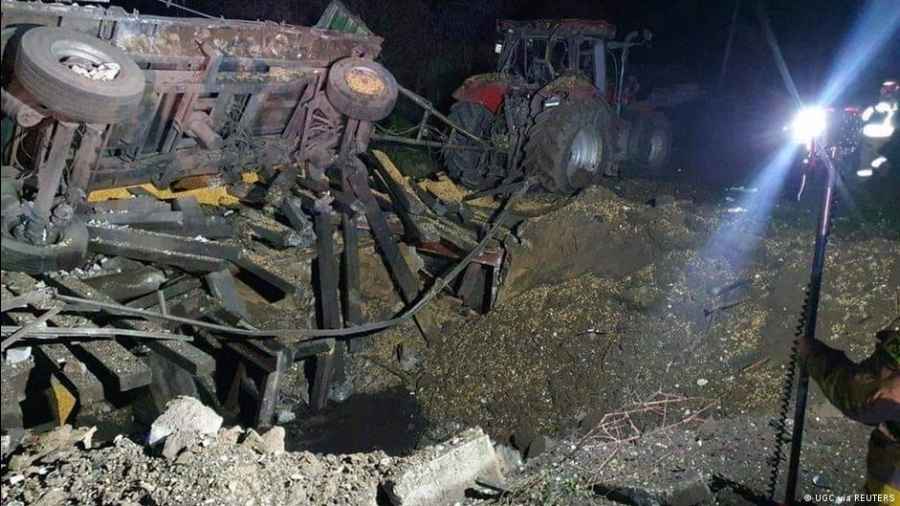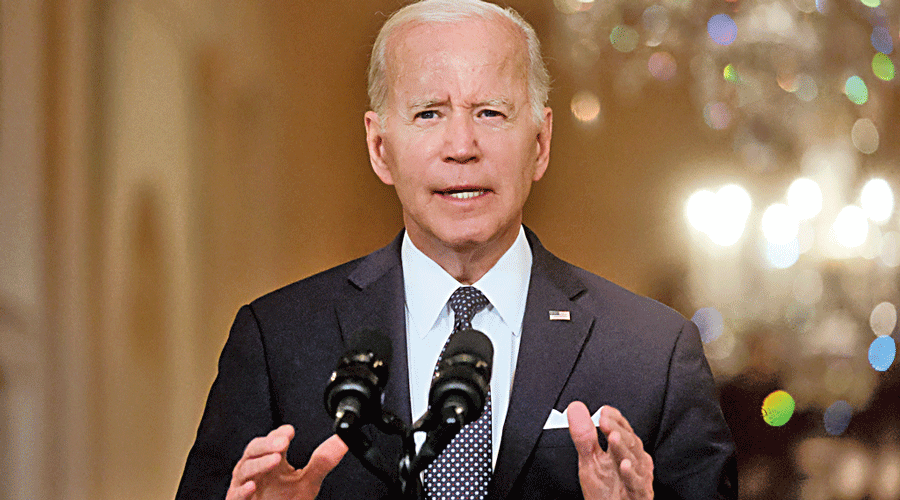NATO convened an emergency meeting of ambassadors in Brussels on Wednesday after a missile crashed near the Polish town of Przewodow on Tuesday, killing two people.
"We have no indication this was the result of a deliberate attack, and we have no indication that Russia is preparing offensive military attacks against NATO," the military alliance's Secretary General Jens Stoltenberg said after the meeting.
However, Stoltenberg noted that the incident happened as Russia launched a "wave of indiscriminate missile attacks" across Ukraine on Tuesday.
"Let me be clear, this is not Ukraine's fault," he said. "Russia bears ultimate responsibility as it continues its illegal war against Ukraine."
Minutes earlier, Polish President Andrzej Duda also said that the missile crash was most likely an "unfortunate accident" and not an "intentional attack."
Poland is one of 30 members of the NATO military alliance. Each member state has agreed to defend each other against attacks from countries outside the bloc.
The European Union has also pledged support to Poland. Russia has denied any involvement in the missile strike.
Investigations into where the missile came from are currently ongoing.
No call for an Article 4 meeting'
If a NATO member is attacked, it can invoke Article 4 of the NATO treaty, which begins formal consultation among the 30 members on how to respond to a perceived threat.
On Wednesday, Stoltenberg played down speculation that NATO members could be drawn into a conflict.
"Allies agree on the approach — there's been no call for an Article 4 meeting," he said.
"That's based on the findings, based on the analysis, and based on the results so far of the ongoing investigation."
He added: "We agreed on the importance of waiting the outcome of the investigation."
Moscow calls for 'measured' response
Russia's defense ministry said photos of the wreckage in Poland "were unequivocally identified by Russian military experts" as being from an S-300 air defense system, as opposed to one of its own missiles. It did not provide further evidence.
Speaking to reporters in Russia on Wednesday, Kremlin spokesperson Dmitry Peskov accused some countries of making "baseless claims" about the missile incident and said the US response has been more measured in comparison.
"In this instance, attention should be paid to the measured and more professional response from the American side," he said.
US President Joe Biden said he is awaiting the results of an investigation before placing blame on any country.
Where did the missile come from?
Initial reports stated the missiles had been fired from Russia, however, the claim could not be verified.
Preliminary inquiries have shown the missile was Russian-made, but Poland's president said early on Wednesday it was unclear who fired the missile.
While US President Joe Biden said the missile probably did not originate from Russia, Finland's Foreign Minister Pekka Haavisto said at a news conference on Wednesday it was too early to determine where the missile came from.
US officials stated that initial findings suggested the missile was fired by Ukrainian forces at an incoming Russian missile, the Associated Press reported.
Several countries, including China and Germany, have called for calm pending investigations into the missile strike, with German Chancellor Olaf Scholz warning against drawing any "hasty" conclusion about the missile's origin.
What happens next?
NATO ambassadors will hold a meeting at on Wednesday morning to discuss the missile strike in Poland close to the Ukrainian border with General Secretary Jens Stoltenberg scheduled to brief the press on their talks.
DW's correspondent Teri Schultz reported from Brussels that Warsaw had not requested a NATO Article 4 meeting.
Poland's national security council (BBN) is scheduled to hold a second meeting at 11:00 GMT on Wednesday amid growing concerns that the Ukraine conflict could spill into neighboring countries after a missile strike killed two people in eastern Poland.
"The BBN is currently analysing the arrangements made so far with commanders, service chiefs and allies," BBN head Jacek Siewiera said in a post on Twitter.
The BBN had met on Tuesday night after news of the strike broke.












